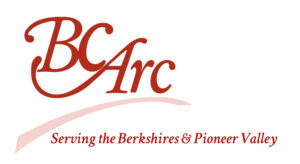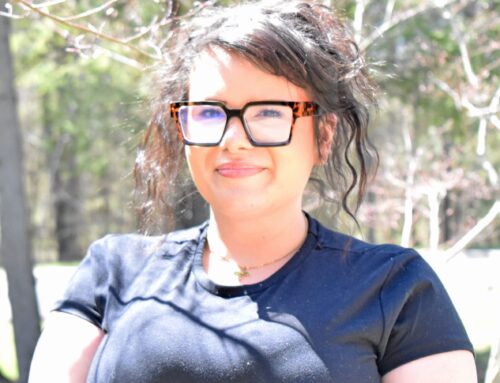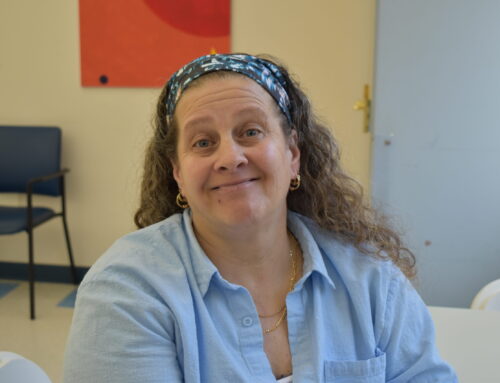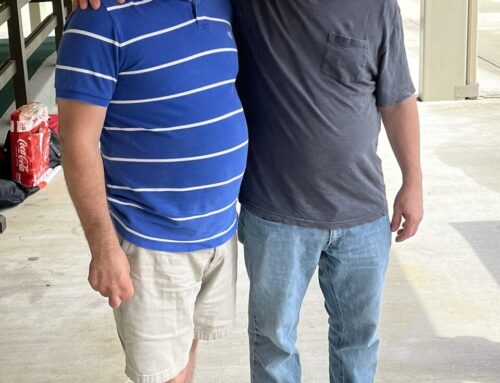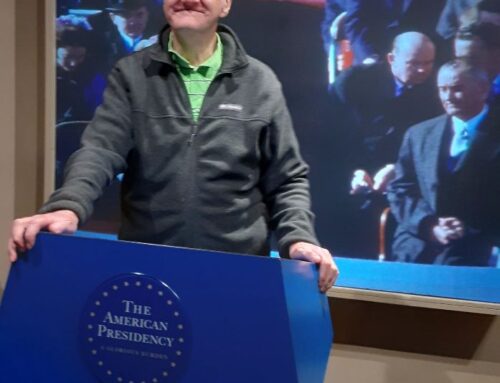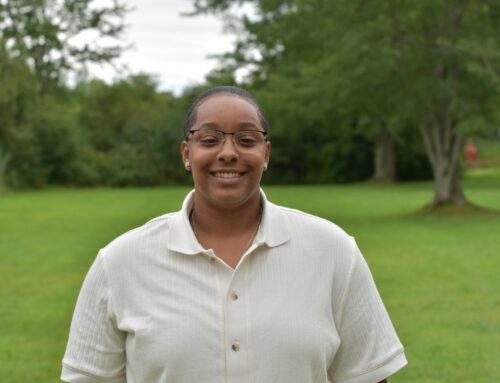Jill Wollins is not your typical BCArc worker. An Ivy League grad with a Ph.D. in bioengineering, she has taught at Tufts Medical School, traveled the country training doctors to use heart-implant devices for Eli Lily clinical trials, and traveled the world—from India to China to Europe— for start-up companies in medical devices and biopharmaceuticals.
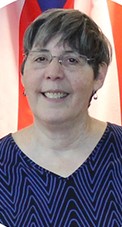
Photo courtesy of Berkshire Community College
“Sounds exciting, and it was, but now I’m doing what I love to do,” said Jill. “I used to volunteer to do this work. Now it’s my job.”
A Berkshire native, she moved back to Western Mass to help her family as she wound down her career. In search of a second career, she enrolled in a certificate program—Community Health Worker—at Berkshire Community College. While there, BCArc’s chief operating officer Maryann Hyatt, with Cybele Kilby and Sonja Stewart, talked to her class about careers at BCArc, particularly in Advocacy & Family Support.
“After class, I knew I wanted to work at BCArc. But I didn’t think I had the right skills,” she said. “When they assigned our internships, they matched me with BCArc. I have been loving it ever since.”
A case worker with Advocacy & Family Support, Jill works with families who take care of a person at home with a disability. She visits the families routinely, provides supports, helps them advocate for themselves, and navigates services.
“This is a much more direct way of helping people than my career has been previously,” Jill said. “The skills I have been developing as a volunteer all these years come together at BCArc.” Fluent in sign language, her experience volunteering with the Alzheimer’s Association, and her 30 years of volunteering as a tutor for kids with learning challenges has equipped her well for her BCArc work.
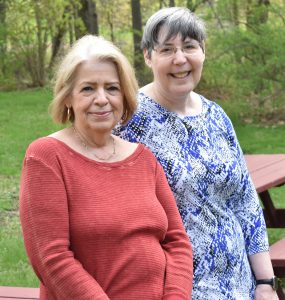
Jill, with co-worker Angela Raciti, RN, posing after receiving an employee award as a team.
Jill came home to Massachusetts to help her take care of her father who had been diagnosed with early onset Alzheimer’s. “In the Down syndrome population who I work with, the likelihood of developing Alzheimer’s at the age of 50 is very high, “ Jill said. “So we have a number of people we are working with – and some on my caseload – who have both Down syndrome and Alzheimer’s.”
“This kind of work means a lot to me personally, I feel very lucky to have a second rewarding career,” she said.
